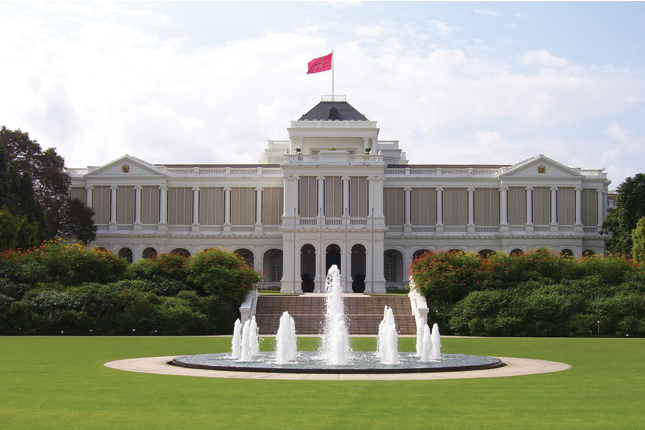Former Speaker of Parliament Halimah Yacob's formal resignation from her political posts on Aug. 7 makes her the third individual from the Malay community to contest the upcoming reserved Presidential election.
Two other members from the same minority group had earlier announced their intention to run: Second Chance Properties chief executive officer Mohamed Salleh Marican, and Chairman of marine service provider Bourbon Offshore Asia Pacific Farid Khan Kaim Khan.
Writ of Election: When?
As the time draws nearer to the election to be held in September, the next big thing to lookout for is the issuance of the the Writ of Election by Prime Minister Lee Hsien Loong.
The Writ is a public document which specifies:
- The date when the nomination of candidates is to be taken (not less than 10 days nor more than one month from date of the Writ).
- The place of nomination.
- It will also declare the election as a reserved election for Malay candidates.
Parliament had passed changes to the Presidential Elections Act in February 2017, which included changes to the timeline leading up to Nomination Day, which is when candidates present their papers and certificates to the Returning Officer.
It is on this date when the Returning Officer declares if the only nominated candidate will be elected as President, or if there will be an election based on how many candidates are nominated.
Nomination Day is now going to be at least 10 days after the Writ is issued, an increase from the previous five days.
[related_story]
Only Halimah qualifies automatically
Among the Singaporeans who are still interested in the election following the election, the key question is: Will there be a contest at all?
On paper, Halimah is currently the only person who qualifies outright, as she satisfies the eligibility criteria for those from the public sector.
While she is eminently qualified to contest, even if the election is an open one, counting former President Wee Kim Wee as the first elected president tilted the field to her advantage.
A reserved election had to be held under the hiatus-triggered model to ensure minority representation in the presidency.
Speculations of Halimah's possible candidacy had also started after the government's White Paper retained the old criteria of three years of experience in the qualifying office. The Constitutional Commission report (see page 53) on amendments to the presidency had originally recommended doubling the duration from three years to six years, and if the government had accepted, that would have ruled out Halimah who had only serve about four-and-a-half years as Speaker of Parliament.
On the other hand, based on the revised criteria, aspiring private sector individuals such as Marican and Khan are required to have been the most senior executive of a company with at least S$500 million in shareholder equity for the most recent three years they led it.
As both will not automatically qualify as a candidate based on calculations of their companies' shareholder equity, that leaves the “deliberative track” as the only way they can try to qualify.
They have to convince the Presidential Elections Committee (PEC) that they have the experience and ability to effectively carry out the functions and duties of the office of the President, in order to get their Certificate of Eligibility (COE).
Back to 1999 and 2005?
The Presidential Elections Committee has six members:
- Eddie Teo (Public Service Commission chairman, Head of PEC)
- Lim Soo Hoon (Accounting and Corporate Regulatory Authority chairman)
- Professor Chan Heng Chee (Member of the Presidential Council for Minority Rights)
- Po'ad Shaik Abu Bakar Mattar (Member of the Council of Presidential Advisers)
- Justice Tay Yong Kwang (Judge of Appeal)
- Peter Seah (DBS Bank chairman)
In the book Singapore Chronicles - Presidency, the filtering mechanism of the PEC was described like this:
"There is a paternalistic colouring to this scheme insofar as citizens may only vote for PEC-vetted candidates. This suggests an institutionally expressed distrust in the ability of citizens to discern the wheat from the chaff in terms of the quality and ability of prospective presidential candidates."
This critical perspective sums up some of the sentiments on the ground but the pre-qualification procedures have been largely retained, even though there have been changes made to the Elected Presidency's qualification criteria and mechanism.
Hence, much will still hinge on the decisions of the PEC, which will be responsible for issuing the COEs for candidates, which in turn will determine if the upcoming election is a contested one, or a walkover for the only qualified candidate.
And if the latter scenario happens, that will bring us back to 1999 and 2005, a time when the Presidency was remembered more as a selection process, than an election outcome.
Top image from Wikipedia
Related articles:
Apparently, Halimah Yacob had decided to run for president as far back as March
Halimah Yacob’s resignation letter is about why she should be President
If elected President, Yishun resident Halimah Yacob hopes to continue staying in her HDB flat
Halimah Yacob confirms (again) she’s thinking about running to be Elected President
There’s an epic battle going on now over one detail in Halimah Yacob’s Wikipedia entry
Ex-NMP Calvin Cheng: Halimah Yacob should not run for President
No by-election if Halimah Yacob leaves Marsiling-Yew Tee GRC, quits PAP
Halimah Yacob confirms she’s thinking about running to be Elected President
If you like what you read, follow us on Facebook, Instagram, Twitter and Telegram to get the latest updates.


